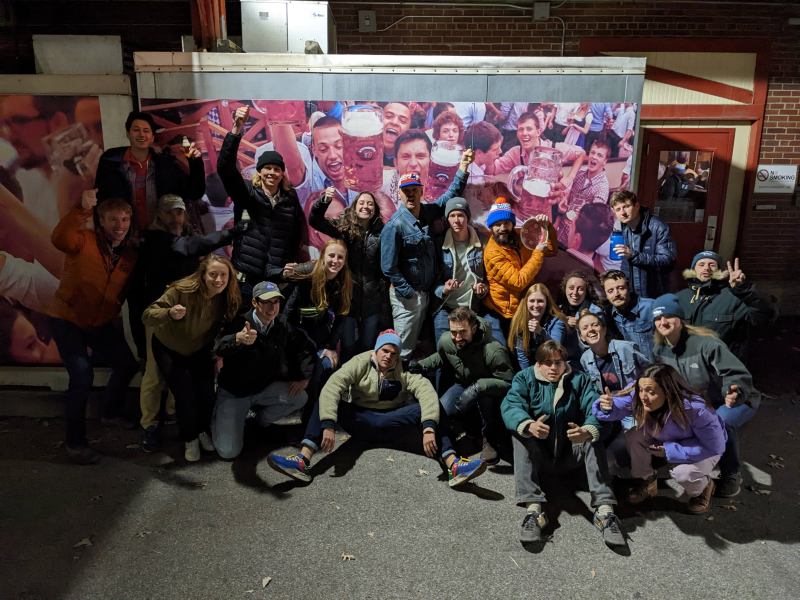
Living History Farms Des Moines – Living History Farms is a 500-acre open-air museum located in Urbandale, Iowa, United States. The museum’s mission is to educate visitors and showcase Iowa’s past 300 years of agricultural history. As the museum’s name suggests, the museum follows the tradition of living history by showing the lives of people who lived on farms in the 1700s, 1850s and 1900s, exploring various occupations.
Dr. William G. Murray, an agronomist at Iowa State University and a two-time gubernatorial candidate, founded the institute, which opened its doors to the public in 1970. Dr. Murray’s passion is without a museum where people can see what lies beneath. Glass, but a place where history lived.
Living History Farms Des Moines
Living History Farms was the site of Pope John Paul II’s homily, on October 4, 1979, when he played and prayed before an audience of nearly 340,000.
Living History Farms In Des Moines
In his speech, the Pope spoke about the importance of agriculture and connecting the people who work the land to the well-being of the people of the country. He also spoke about the importance of land conservation.
The museum is separated by Interstate 35/80 and a trolley that transports visitors from downtown (next to the Madhouse in the Visitor Center) to the west side of the museum. After visiting the 1700 Iowa Farm, 1850 Farm, 1900 Farm and Wallace Exhibit Sectors, visitors return to the east side of the area. The 1875 town of Walnut Hill has several structures that are original to the site, including Martin and L. Flynn’s house and barn.
A 1700 Iowa Indian Farm depicts the agricultural practices of the Iowa Indians. Mildred Mott Wedel is the archaeologist responsible for designing the project.
The farm has 19th-century produce such as blue corn and Omaha watermelon. Interpreters tell visitors about Iowan culture, including hunting, men’s and women’s jobs, and tool making. Demonstrations include leather tanning, food preparation and traditional pottery making.
Bovins Corne Courte Tirant Des Grumes, Living History Farms, Urbandale, Iowa Photo Stock
An 1850 pioneer farm has a log cabin where you can see women cooking and ironing over the fire, as well as crafts like wool spinning and candle making. Outside visitors can see cows plowing the fields to fill the fields with wheat, corn and potatoes.
In 1875 the town of Walnut Hill consisted of a general store, school, Victorian mansion, bank, law office and other downtown buildings. The city reflects the relationship and trust between townspeople, merchants and farmers.
A 1900 horse farm shows how modern machinery and the Industrial Revolution changed farm life. Manual labor was replaced by machines and work in agriculture changed to include technologies such as tuna.
The type of work at Living History Farms is third-person, so even though visitors who work at the museum are dressed in period clothing, they don’t try to “act” like that person. He translates (minutes, etc.). Teachers often do a lot of work, so they say, “I made this bread,” or address the audience, “This is what the press looked like in 1875.” However, since the presenters are not presenting, guests can ask questions about new topics and get direct answers. Choose a wedding venue full of style, historic charm and beautiful views at Living History Farms. The 1876 Prairie Gothic-style Earth Church in the town of Walnut Hill is perfect for a wedding ceremony, as is the Flynn Barn, built in 1870 and listed on the National Register of Historic Places. Places, a rustic event in a beautiful setting. The Great Room of the wedding guest house is a unique space with exposed beams, skylights, brick, wood inlays and French doors that open to a stone floor surrounded by mature trees. Or explore some of our outdoor spaces, such as the Walnut Hill Gazebo, the front porch of the Victorian Flynn Mansion, and the beautiful wooded spaces on the museum grounds. We accommodate 130 to 160 guests depending on venue size and your rental includes free set up and breakdown of tables and chairs and free parking for you and your guests.
Henry A. Wallace Exhibit Center, Living History Farms Stock Photo
Living History Farms is an outdoor history museum located in Urbandale, IA. Hotels and restaurants are nearby, and the museum is easily accessible from the Interstate 35/80 interchange. (Middle Earth 80 Issue 125).
Prices vary based on the number of our rental locations you are booking and the length of your event. Please contact us with questions at (515) 278-5286 ext. 126 or by email at events@LHF.org.
Living in des moines, living history farms des moines ia, fort des moines living, senior living des moines, elevate living des moines, assisted living des moines, living history farms in des moines, retirement living des moines, pine ridge farms des moines, living history farms des moines hours, downtown des moines living, des moines living history farms